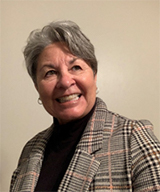The week of June 14-20 is International Men’s Health Week, which is observed annually during the week leading up to and including Father’s Day. It is important to raise awareness of preventable health issues, and encourage early detection and treatment of diseases among American Indian and Alaska Native men. On Friday, June 18, you can help show your support by participating in Wear Blue Day and using #ShowUsYourBlue on social media.
Risk Reduction
Early detection and prevention can save lives, and during Men’s Health Week it is important to encourage men to make their health a priority. American Indian and Alaska Native men face greater health disparities, so regular doctor visits and screening tests are important in reducing the risks of common health issues that affect men.
Adopting positive lifestyle choices is an important step in reducing the risk of many men’s health issues. Some of these healthy habits include:
- Keeping up with routine doctor visits
- Eating a balanced diet
- Limiting alcohol consumption
- Quitting commercial tobacco
- Maintaining a healthy weight
- Staying active
Mental Health and Wellness
In making physical health a priority, do not forget about mental health too. Learning to effectively manage stress and talking to providers is important. Many men are hesitant to seek medical attention, as they see it as a sign of weakness. Families and communities should remind men that it is a sign of strength to talk to a doctor and take control of their health.
Men’s Health and COVID-19
Data from the CDC and IHS shows in COVID-19 vaccination rates that men are less likely than women to be vaccinated. As men who have received the COVID-19 vaccination you can help encourage other men to protect themselves, their families and loved one’s in the following ways:
- Provide support
- Share your experience
- Provide information for information-seekers
- Affirm vaccination as protection
Community and Family Support
Avoiding the doctor will not make health issues go away, so health care providers and men should work together to detect, prevent, and treat men’s health issues. Understanding the risks and taking action to reduce those risks benefits the health of men and their families. Prioritize your health, show your strength, and set a good example for young men and boys.



